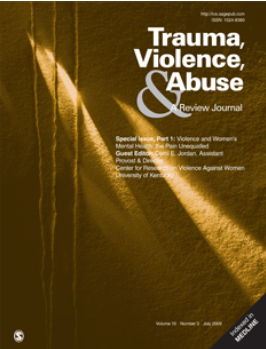Listen to Me! Target Perceptions of Digital Hate: A Scoping Review of Recent Research
IF 5.4
1区 社会学
Q1 CRIMINOLOGY & PENOLOGY
引用次数: 0
Abstract
Digital hate is typically targeted toward individuals or groups based on distinct attributes. Despite numerous studies on targets of digital hate, there is a lack of a systematic meta-perspective on targets’ perceptions of digital hate. Therefore, this scoping review aims to assess available definitions and characteristics of targets, consequences of digital hate together with targets’ reactions and coping strategies, dominant methodologies, and identified future outlooks of digital hate victimization research. To achieve this goal, we systematically searched two established databases (i.e., Web of Science and Scopus) for research published from 2020 onwards using a comprehensive search string of digital hate terms. Out of the 12,978 publications screened for eligibility, 230 studies met the inclusion criteria for this review. All selected studies were in English and featured targets of digital hate as the sample. The findings indicate a lack of conceptual clarity, a strong dominance of Global North perspectives, a scarcity of research on children, older adults, men, and people from minority groups, and a need for experimental and longitudinal quantitative research methods, as well as qualitative and mixed-method research. Most importantly, we found that victimization consequences and coping strategies adopted by targets have been researched without sufficiently accounting for inconsistently privileged and intersectional identities and without examining contextual effectiveness. This review, therefore, emphasizes the necessity of taking an intersectional approach to gain a thorough understanding of targets’ digital hate victimization experiences and both short- and long-term coping effectiveness.听我说!数字仇恨的目标感知:近期研究的范围审查
数字仇恨通常基于不同的属性针对个人或团体。尽管对数字仇恨的目标进行了大量研究,但对目标对数字仇恨的看法缺乏系统的元视角。因此,本综述旨在评估目标的现有定义和特征、数字仇恨的后果以及目标的反应和应对策略、主流方法,并确定数字仇恨受害研究的未来前景。为了实现这一目标,我们系统地检索了两个已建立的数据库(即Web of Science和Scopus),使用数字仇恨术语的综合搜索字符串检索2020年以后发表的研究。在筛选的12978篇出版物中,230项研究符合本综述的纳入标准。所有选定的研究都是用英语进行的,并以数字仇恨的目标为样本。研究结果表明,概念缺乏明确性,全球北方观点占主导地位,对儿童、老年人、男性和少数群体的研究缺乏,需要实验和纵向定量研究方法,以及定性和混合方法研究。最重要的是,我们发现对受害后果和目标采取的应对策略的研究没有充分考虑不一致的特权和交叉身份,也没有检查情境有效性。因此,本综述强调有必要采取交叉方法,以全面了解目标的数字仇恨受害经历以及短期和长期应对效果。
本文章由计算机程序翻译,如有差异,请以英文原文为准。
求助全文
约1分钟内获得全文
求助全文
来源期刊

Trauma Violence & Abuse
Multiple-
CiteScore
13.60
自引率
7.80%
发文量
131
期刊介绍:
Trauma, Violence, & Abuse is devoted to organizing, synthesizing, and expanding knowledge on all force of trauma, abuse, and violence. This peer-reviewed journal is practitioner oriented and will publish only reviews of research, conceptual or theoretical articles, and law review articles. Trauma, Violence, & Abuse is dedicated to professionals and advanced students in clinical training who work with any form of trauma, abuse, and violence. It is intended to compile knowledge that clearly affects practice, policy, and research.
 求助内容:
求助内容: 应助结果提醒方式:
应助结果提醒方式:


